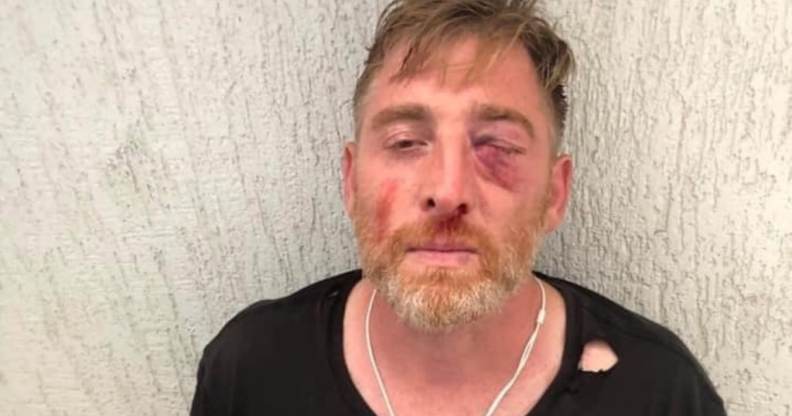Georgia police accused of cover-up after drugs arrest linked to cameraman’s death

Alexander (Lekso) Lashkarava died after he covered the violent protests at Tbilisi Pride. (Twitter)
Officials in Georgia have been accused of a cover-up after arresting a person for allegedly selling heroin to Alexander Lashkarava, the cameraman who died after being assaulted by a far-right mob at Tbilisi Pride.
On Sunday (18 July) the country’s Interior Ministry announced that, following “complex operative-investigative activities”, they had arrested a person for illegal purchase, keeping, and selling of drugs in especially large quantities.
The government said it believes this person sold heroin to Lashkarava, claiming that the journalist and his companions bought the drug on 10 July, the day before he died. Authorities have published CCTV footage purporting to show their movements around the city on this date.
“The investigation established that the accused was selling drugs illegally, on the regular basis and he was the dealer from whom the cameraman of TV-Pirveli – Aleksandre Lashkarava – and his companions purchased ‘heroin’ on July 10, 2021 in Ponichala,” a statement claimed.
Shortly after Lashkarava died, police entered his home and forcibly seized his body for a state-led autopsy, despite the objections of his family who fear a cover-up.
Together with Lashkarava’s friends, colleagues, opposition politicians and civic activists, they have voiced distrust in the investigation and accuse the government of attempting to discredit him to avoid taking responsibility for his death.
Georgia government accused of using drugs arrest to evade accountability
Director of Tbilisi Pride Giorgi Tabagari expressed deep scepticism at the arrest of Lashkarava’s so-called “dealer”, saying that the government commonly uses this tactic to discredit its critics.
“The whole thing about the case setting up and linking it to some sort of drug-related issues, the thing is no one really believes that because this is how how the government tries to sneak out of the situation and avoid taking responsibility,” he told PinkNews.
“They try, obviously, to not be held accountable for the violent attacks that took place in Tbilisi on 5 July, and usually one of the methods that they use is to link a person somehow to drugs.”
An interim chemical expertise report on 12 July suggested that Lashkarava could have died of a drug overdose, listing five substances found in the man’s body including cannabis and several opiates.
Alexandre Gejadze, a TV Pirveli-appointed expert, explained that Lashkarava was receiving morphine to treat severe pain following surgery he had to undergo after sustaining concussion, facial bone fracture and multiple contusions at Tbilisi Pride.
A further forensic medical examination is set to take place with an independent expert appointed by the journalist’s family.
Tabagari also questioned the veracity of CCTV footage released by the Georgian government which claims to show Lashkarava moving around the city in the hours before his death.
“The footage that they disseminated was analysed by lots of media and it seems that it’s fabricated,” he said. “And at this point when the reputation of the government is so damaged, no one really believes the story that they are [using to] cover up.”

